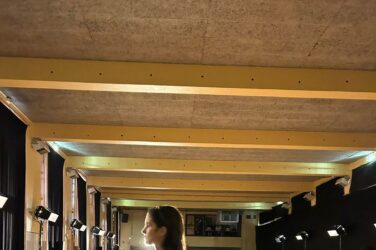How could a Spanish nineties club anthem suddenly rise to number two on Finland’s Viral 50 Spotify playlist? Join E&M author and editor Alberto Méndez in his journey to discover how this year’s Eurovision finale has triggered such phenomenon amongst Finns.
Eurovision, despite its musical focus, is not devoid of sociopolitical and economic power dynamics. While the competition aims to promote unity, it is not immune to geopolitical tensions and influences. Winning the contest provides a stage for the victor, attracting attention, tourism, and potential economic benefits. Although plagiarism allegations in the music industry are not uncommon, they do hold significant weight when they surface in a global platform like Eurovision. Regardless of both songs’ similar melodic structure, what’s interesting is what such conflict has triggered.
“Flying Free” was an audacious experiment, fusing the relentless rhythms of quasi-hardcore Catalan mákina (a descendant of Valencian bakalao) with the captivating vocals of London-based singer Marian Dacal. Upon its release in May, it initially struggled to meet the high expectations set for it. However, fate had other plans. In a twist of destiny, “Flying Free” catapulted to unprecedented heights of popularity during the summer months. Discos across Catalonia propelled it to mass playability, vinyl records flew off the shelves, and by the time Christmas arrived, “Flying Free” had its own merchandise line, solidifying its cultural impact.
Yet, as with all musical eras, the mákina movement eventually reached its twilight years. The evolution of electronic music led to a paradigm shift and the genre’s decline manifested in the closure of its prominent clubs, with some repurposed into supermarkets or transformed into nostalgic venues dedicated to 80s pop music.
Additionally, the controversy emphasizes the evolving dynamics of the global music landscape. In an era of increased cultural exchange and interconnectedness, the notion of a single country’s dominance becomes more nuanced. The rise of artists from different nations, diverse musical influences, and the democratization of music production all contribute to a shifting paradigm in which Sweden’s supremacy faces challenges from other emerging musical powerhouses.
In this context, the allegations of plagiarism against “Tattoo” act as a wake-up call, urging Sweden’s music industry to continuously push boundaries, embrace innovation, and adapt to the changing dynamics of the global pop music scene.
Top picture by Artem Bryzgalov on Unsplash.










